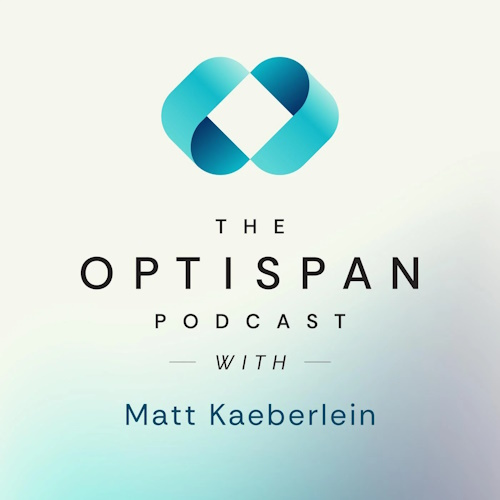Stem Cells, Aging Hallmarks & Rapamycin
Matt and longevity expert Kevin White discuss advancements in geroscience and age management
Matt attended the 52nd annual American Aging Association meeting in Madison, Wisconsin, where he met Kevin White, a physician specializing in longevity at Prime Health Associates. With extensive experience in emergency and integrative medicine, Kevin is known for actively engaging in ageing science discussions. Matt enjoyed a detailed conversation with him about topics such as stem cell therapy, rapamycin, and ageing.
Key Points
This episode centres on the discussion between Matt and Kevin White, a longevity specialist from Prime Health Associates, focusing on geroscience and sparking a detailed conversation about stem cell therapy, rapamycin, and ageing.
- Rapamycin and mTOR: Rapamycin is a drug derived from soil bacteria on Easter Island that inhibits the mTOR protein, a key regulator of cellular growth and reproduction. This drug mimics low-nutrient conditions, signalling cells to reduce growth and division, which has implications for ageing and disease.
- Rapamycin’s Potential in Longevity: In various model organisms, such as yeast, worms, flies, and mice, rapamycin has been shown to increase lifespan and delay age-related diseases. The drug's ability to start treatment in middle age and still provide significant benefits makes it a promising candidate for anti-ageing therapies.
- Human and Canine Studies: While extensive studies in animals have shown positive effects, research in humans and dogs is still in its early stages. Preliminary results suggest rapamycin may improve heart function and increase activity levels in older dogs, and there is anecdotal evidence of benefits in humans, particularly in improving vaccine responses and certain heart conditions.
- Side Effects and Dosing: The side effects of rapamycin are generally minimal, with mouth sores being the most common. There is ongoing research into the best dosing regimen, with once-weekly doses potentially offering fewer side effects compared to daily use.
- Rapamycin and Klotho Protein: Rapamycin may increase levels of the Klotho protein, which is associated with longevity and cognitive function. This has been observed in mice, but more research is needed to determine if the same effect occurs in humans.
- Hallmarks of Ageing: The podcast also touches on the 12 hallmarks of ageing, which include factors like DNA damage, epigenetic changes, mitochondrial dysfunction, and chronic inflammation. Understanding these hallmarks is key to developing effective anti-ageing therapies.
Visit website: https://www.youtube.com/watch?v=e1lcGVIojFY
See alsoDetails last updated 16-Aug-2024
Mentioned in this Resource
Kevin White
Kevin White, with over 20 years in Trauma/ER medicine, is the owner of Prime Health Associates



